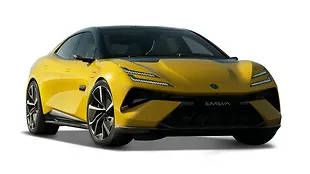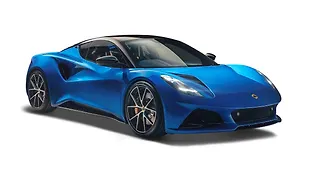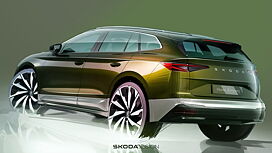Introduction

Comparing the two cars you see on the screen might surprise you. But the fact remains that although these aren’t from the same segment, they are similarly priced and specced. And, those who are on the lookout for a hatch with a budget of about eight lakh rupees will surely think of both of these. So, without further ado, please welcome Ford’s latest Freestyle in its 1.2-litre petrol manual Titanium+ guise at Rs 8.08 lakhs, and the similarly specced Maruti Swift ZXi+ that costs Rs 8.41 lakhs (both on-road Mumbai).
We at CarWale just had to give you a low-down on how a crossover (current heart-throb) could maybe turn out to be a better proposition than even a distinguished hatchback. Let’s get rolling and find out which one deserves a spot in your parking.
Looks the part?

Maruti’s Swift has a pleasing design, one that strikes a fine balance between being sporty and modern. The front-end is especially eye-catching thanks to a humongous grille that’s flanked on either ends by those large head lamps with snazzy LED internals. What’s unique though, is the slim glass area that ends abruptly at the C-pillar where the black trim hides the rear door handle. But that said, the rear section with its bland tail lamps and basic bumper styling feels quite unexciting.

At first glance, the Freestyle appears to be a Figo-on-stilts (174mm vs 190mm) with a few add-ons to make it look more like a crossover. These include a new alloy design, some rugged skid plates, black cladding all over, nicely tweaked bumpers, plus those roof-rails without which any crossover would have looked incomplete. Well surely, the rugged appearance of the Freestyle has far more appeal than the Figo. Plus, blame it on recent times (read SUV/Crossover era), but we nudge towards the Ford Freestyle when it comes to looks.

Space wars

There’s no doubt that we instantly preferred the Swift when it came to interior design. The black dash looks thoroughly modern with silver accents, large attractive dials and a centre console that’s nicely angled towards the driver which makes access to the car’s controls and that large touchscreen easier on the go. In comparison, the Freestyle’s dash not only looks outdated, the so-called Sienna brown doesn’t really gel well with the rest of the black and grey interiors. Plus, the tiny instrumentation and dials look old-school. Even the centre console could have been tilted towards the driver for better accessibility.

On the whole, while we believe that the Swift has more finesse along with better fit and finish, the Freestyle scores when it comes to build quality that will better withstand the test of time. Now, we favoured the Freestyle’s touch screen in spite of it being smaller, since it was easier and a delight to operate thanks to quicker frame rates and a great resolution. On a personal note, I appreciated the Freestyle’s smart positioning of the ‘TCS-off’ button next to the handbrake for intuitive toggling, and that much-needed neck-muscle relief from those height adjustable seatbelts. When it comes to storage, we clearly liked the Freestyle’s more usable compartmentalised cubby storage on both the lower centre console and door pads.

Let’s move on to the front seats. The Swift’s large seats have just about enough contours for adequate comfort and there’s lots of lateral support here. In fact, legroom and shoulder room is also far superior to the Freestyle’s, and this will surely appeal to larger occupants. However, the Ford fights back with larger seats which, coupled with better contours and more thigh support, turns out to be comfier in comparison. But that said, both cars have spades of headroom. At the rear, although both cars have flat benches with minimal contours, the Swift’s softer cushioning makes it comfier. Sure, the headroom is cramped for tall passengers in both cars, but there is some consolation in knowing that the Swift has marginally more headroom. Now, the Freestyle benefits from a longer backrest (better back support) and decidedly more legroom.

Going forth, thigh support in both cars is not adequate, seating for three will be a tight affair (identical shoulder room) and neither of these cars offer rear air-con vents. Thankfully, rear seat occupants in the Swift have access to recesses in the door pad that can hold a 500ml bottle. On the other hand, travellers in the Ford will have to make do with the two front seat-back pockets. On the boot front, not only is the Swift’s 268-litre enclosure slightly larger than the Freestyle’s 257-litre boot, the 60:40 rear-seat split-folding mechanism in the Swift allows it to swell further, making it more versatile than the Ford (no split-folding option). Nonetheless, the Ford’s boot lip is much lower to the ground and this aids luggage placement.

Decked-up, is it?

In terms of features, both of these cars get auto headlamps, dual front airbags, ABS with EBD, reverse parking sensors and camera, a touchscreen infotainment with Android Auto and Apple CarPlay and push button start. There’s also keyless entry, climate control, tilt steering, rear defogger/wiper and 15-inch alloys. What’s unique in the Swift are the LED headlamps and an electromagnetic boot lid opener. However, what the Freestyle brings to the table are rain-sensing wipers, height adjustable driver seat belts, four more airbags (six in all), Hill Assist and ESP, and some crossover goodies such as roof rails, cladding, and skid plates at both ends.

Pedal to metal

Although both the Ford Freestyle and Maruti Swift are powered by a 1.2-litre petrol motor in this test, the Ford’s unit is a new Ti-VCT Dragon series three-cylinder mill while the Maruti uses a four-cylinder K12 motor. When idling, the typical three-cylinder thrum emanates from the Freestyle. However, superb insulation keeps noises at bay and makes for a silent cabin unless you floor the throttle. On the other hand, the Swift doesn’t enjoy the same level of insulation, so despite its engine being more refined, exterior noises are quite audible within the cabin.

Come to think of it, things get interesting when you find out that the Ford makes a higher output of 94bhp/120Nm vis-à-vis the Maruti’s 83bhp/113Nm despite the cylinder disadvantage. But hold on, before you draw any conclusions it needs a special mention that the Ford weighs a whopping 190kg more than the Swift (1070kg vs 880kg)! Now, despite the cylinder and weight disadvantage, the Freestyle is surprisingly promising to drive, especially within the city. It seems like Ford flung most of the 120Nm of torque at the lower rev-range which is available as soon as you get off the mark.

This means that a light foot on the accelerator without the need to constantly work through the gears (in heavy traffic) is all that’s needed to keep the momentum going due to the strong pulling power. Sure, the Swift doesn’t have as much torque flowing in as early as the Freestyle’s, but a little extra dab on the throttle gets its smooth and responsive motor to pick up pace in quicker times than its contender here. The combination of the free revving engine and the lighter chassis just boosts the performance exponentially.

This is visible in the 0-100kmph run that the Swift clocked in 12.26 seconds, and while at it, the motor also lets out a sporty roar at the 6200rpm red-line. Compare this to the 14.28 seconds that the Ford took to do the same feat. Now, unlike the Swift, the Freestyle feels more strained and audible when approaching its higher 6600rpm rev-limit. This is especially obvious when you need to perform a quick overtake, and you end up with more NVH than the intended progress in speed. This was confirmed by the 20-80kmph drivability tests which took the Freestyle 14.24 seconds while the Swift did it in just 13.09 seconds. This is primarily due to the limitations of a three-cylinder motor.

Now, the Ford’s new Getrag five-speed manual gearbox feels rubbery in comparison to the Swift. However, the shift gates are reasonably smooth for a positive and predictable gearshift. On the other hand, the Swift’s five-speed manual gearbox has a light lever with short throws and well-defined gates which inadvertently pushes you to perform a quick shift. This essentially makes the whole gear-shifting chore quick and effortless. On the efficiency front, and as expected, the heavier Freestyle was less efficient than the much lighter Swift. While the Ford Freestyle returned 13kpl/16.4kpl in the city/highway runs, the Swift returned a higher 13.6kpl/17.9kpl.
Feel the tarmac

The Freestyle gets a well-judged suspension setup, which, when coupled to the 185/60 R15 tyres and the 1070kg mass, gives it an extremely pliant ride. Regardless of the speed, the dampers just absorb most bumps without sending much shocks into the cabin, and there’s hardly any suspension noise either. The Swift’s ride isn’t as accomplished as the Ford, and there is some up and down movement within the cabin when going over sharp bumps at slow speeds. But once you go faster, the ride does get a bit flatter.
Let’s talk about the handling now. The Freestyle’s steering is heavier in comparison and has hardly any slack around the straight-ahead position. It also has lesser turns from lock-to-lock which makes it easier to manoeuvre in tight situations. In comparison, the Swift’s steering is lighter and lends just about the right amount of feedback. However, it is slightly vague off the dead-centre, and the fact that it has more turns from lock-to-lock makes it slightly more tedious to manoeuvre in compact spaces.

In a straight line, the Ford feels more rock solid and exhibits good stability, a trait that inspires confidence within you to go farther, regardless of the road condition. Sure, the Swift may not feel as surefooted as its contender, but the little Maruti more than makes up for it by feeling more nimble when pushed around corners, thanks to the better chassis balance.
Who wins?

Let’s stack things up now. What we liked about this baby crossover is that it costs Rs 33,000 less, boasts superior build quality, appears and feels solid/rugged, more usable compartmentalised stowage, comfier front seats and more rear space for occupants, and very good cabin insulation. Its motor offers great low-end grunt and it has better ride quality too. On the downside, refinement of the Freestyle’s three-cylinder mill suffers, it isn’t as efficient, gets an unexciting cabin/dash, there’s the non-existent rear door-pad storage and 60:40 spilt-folding seats are absent.

On the other hand, there’s very little not to like about Maruti’s new Swift. We felt that the cabin insulation, steering, ride and straight-line stability could have been better. Plus, the fact that it costs an additional Rs 33,000 doesn’t ring ‘the value-for-money’ bell either. Having said that, there’s a lot to like about this hatch. It has better ergonomics, an attractive cabin, better fit and finish, a comfier rear bench with 60:40 spilt-folding and more space in the front. It also benefits from an extremely flexible/refined motor with better overall performance and efficiency, a truly effortless gearshift, and nimble road manners - enough for us to undeniably crown it the winner of this comparison.
Pictures- Kaustubh Gandhi
2018 Ford Freestyle 1.2 Ti-VCT Titanium First Drive Review
2018 Maruti Suzuki Swift Petrol First Drive Review
2018 Maruti Suzuki Swift Diesel First Drive Review

![Maruti Suzuki Swift [2018-2021] Image Maruti Suzuki Swift [2018-2021] Image](https://imgd.aeplcdn.com/272x153/n/cw/ec/26742/swift-exterior-right-front-three-quarter-2.jpeg?q=80)

























